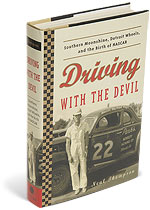As we go through the Easter season, my heart is open to the significance of things that normally escape my notice. Unable to assemble with our church family, we gather online. We took our computer outdoors and sang “Hosanna” on our patio. The palm trees around us waved in the breeze, visual aids for the message of Jesus entering Jerusalem amid followers waving branches and calling out “Hosanna!” I felt a connection to history.
Hosanna, an expression of adoration, praise, or joy, is for me a stubborn rebuke to fear. In this season of danger, the Lord’s people will not be overcome. We grieve for those who have succumbed to Covid-19 and pray for their families. We ask God to protect those on the frontline of this battle. For the moment, happiness is gone—but not joy, which doesn’t depend on agreeable circumstances.
As Resurrection Sunday approaches, we find substitutes for our traditional celebrations. Some of us will watch “The Passion of the Christ” or “The Greatest Story Ever Told” or another Easter re-enactment film. I’m grateful those productions exist to bring the scriptures to life, but I cannot bear to see them. The best way to explain why I will never watch those movies is to tell you about my sister.
Beautiful, blue-eyed, funny, compassionate Elizabeth died of sudden impact in a traffic accident at 19 years old. The truck driver didn’t intend to kill her, and I’m grateful I didn’t have to struggle with forgiveness. The highway patrolmen who worked the accident knew my mother well through the workplace, and at their insistence my husband identified Elizabeth’s body so Mother wouldn’t have to. I don’t think she would have survived it; for over three decades she grieved every anniversary of Beth’s death and died four years ago on the same day Elizabeth had died.
I don’t know what Beth’s injuries were. I’ve been assured she didn’t suffer. I purposely avoided the opportunity to see the car she died in. Her loss was hard enough to bear. The only way I could have felt worse is if I’d been driving the truck.
In the same way, I don’t need to see the movie to imagine the suffering of Jesus—I read the book. And when I think of him betrayed, whipped, mocked, and nailed to a cross, I know I helped put him there. I was “driving that truck.” I couldn’t feel any worse. I also couldn’t feel more loved because I know it was no accident. Jesus intentionally sacrificed himself, and my response is both grief and gratitude. It’s what causes me to try every day to bring my life more in line with his will.
There is a day coming about which no one will need to make a movie. The final act of human existence will begin with the return of Jesus to earth. I don’t know exactly what it will look like, but it will feature a cast of angels and the glory of God, and He’s promised no one will miss the event. We will witness the fulfillment of our joy and His. It will beat any scene ever portrayed on screen.
Again, I hope it doesn’t sound like I think there’s anything wrong with films that bring the Word to life with accuracy. On the contrary, I’m excited that believers are putting their talent and money to work for the kingdom. My hope is that, after watching the historical account of the Gospel on screen, those who have never read the Bible will be compelled to do so, and believers will never again read the Bible with complacency. The pivotal days of Holy Week and the victory of Easter Sunday are the most crucial chapter to date of the greatest—true—story ever told. They are why our joy will never die. Pray without ceasing and guard your joy, looking forward to that day!


